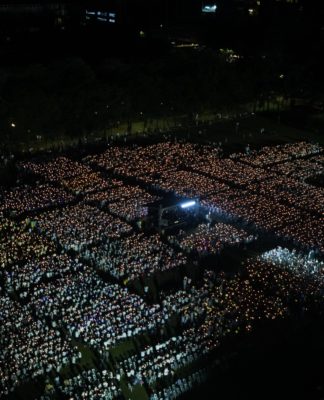EVERY time I see the stream of polluted water beside our home in the province, I cannot help but wonder how clean and clear it was during the old days. Although it is still not as polluted as the other rivers in the country, time may come that its state will worsen.
My late grandmother used to tell us stories about them bathing, swimming and fishing in it. For sure, it was an amazing sight to behold. Unfortunately, my generation will never be able to see its former glory.
It is undeniable that the world is facing a lot of environmental problems. Global warming, which leads to unstable climate, melting of polar glaciers, rising sea levels, among others; all types of pollution—air, water and land; deforestation; illegal logging and mining; and exploitation of natural resources, and endangered animals and plants—are just some of the issues that humankind is facing.
In the Philippines, disregard for the environment is indeed a grave matter of concern. Our country is still largely engaged in the use of coal, a major cause of pollution, as an energy source. Poaching of endangered species, illegal mining operations, and other unlawful environmental activities are prevalent. Moreover, proper waste segregation and disposal remain problematic and perhaps, unimplementable.
When we look upon our environmental legislation, it would seem that we are a developed country. We probably even have some of the best environmental laws in the world, enough to ensure the conservation and protection of nature and our environment. Despite this, we continue to face ecological problems because our national laws and governmental policies are not concretely implemented to their fullest and strictest sense.
We can further trace the root cause of the situation to our ways of living. Ours is a generation of convenience, with a “technocratic” civilization characterized by consumerism and capitalism. We continue to harm our environment by making our lives more convenient.
For instance, we use disposable plates and utensils when eating because we simply do not want to wash our dishes. We use straws when drinking when we can still perfectly drink without using such. We continue to dispose everywhere or burn our trash because we became so used to these ways—all for our convenience.
Because of modernization and industrialization, most people have lost their bond with nature. We are no longer amazed by the tall green trees but are rather mesmerized by giant skyscrapers. We no longer appreciate the birds that fly but are rather interested in seeing airplanes and rockets making their way up in the sky. Because we are all busy with our “advanced” lives, we take nature for granted, and its wonders are just but another ordinary sight for us, if not tourists’ spots.
It is very alarming that we only start caring when we are already experiencing danger and calamities, which could have been prevented in the first place. What is more concerning is there is no continuing effort from most people when it comes to active participation in environmental advocacies.
We often go to environmental conferences or participate in environmental fun-runs, campaign, clean-up drive and tree planting activities, but most of us stop there. Most of us think that once we do one noble act for the environment, it is already enough.
It is still commendable, however, that the Philippines has already made a lot of progress in saving our environment. The dying Pasig River, although still polluted, has improved its state since 2011, with the initiatives of the Pasig River Rehabilitation Commission. A lot of “natural integrated protected areas” have been declared and maintained. Most municipal and city governments have also adopted proper waste management systems.
The City of San Fernando in Pampanga was even able to attain “zero-waste” management of garbage since 2013, because all of its barangays have their own material recovery facilities and every household properly segregates. It was also able to properly and effectively implement the Ecological Solid Waste Management Act or Republic Act No. 9003, which has been a struggle for other cities and municipalities to comply with.
It is also noteworthy that the University of Santo Tomas has also been committed in protecting and conserving the environment. It adopts a smoke-free policy, recycles rainwater for planting and cleaning purposes, observes proper segregation and maintains a long line of trees inside the campus, among others.
Its offices and colleges recycle papers; some adopt a styro-free policy. Students are also actively participating in environmental advocacies, clean-up drives and community service, with several organizations such as Earth-UST, and many more.
The challenge for all of us now is to continue what we have already started. In a country where most people are Christians, everyone must realize that disregard for the environment is an “ecological” sin. As such, we do not remain true to our purpose as stewards of God’s creation.
All of us can become environmentalists in our own personal ways. The Earth was entrusted to all of us, and we are the ones responsible for all that is happening to it. As said in the Scriptures, we feel God’s love and presence through His creation—that includes not only the land, the water, the air, the animals, but also our fellow human beings.
As highlighted in two landmark Supreme Court decisions, Oposa v. Factoran and Resident Marine Mammals v. Secretary Reyes, every Filipino has the right to fight for the environment, especially for those who cannot speak for themselves and those who are yet to born.
We should uphold the concept of “intergenerational responsibility” by ensuring a “balanced and healthful ecology, in accordance within the rhythm and harmony of nature,” not only for ourselves but also for our children and their future children.
As noted in Pope Francis’ encyclical, Laudato si’, “the environment is a part of a logic of receptivity. It is a loan to each generation, which must then hand it to the next.” Thus, we are all called towards ecological conversion—to shun our old habits and strive to find ways on how we can contribute to the protection and conservation of our environment through our own simple ways.
We should never lose hope in saving our environment in spite of the veracity and severity of the problem, because despite everything that was already lost, there is still so many that are left to us, which are really worth fighting for.
















